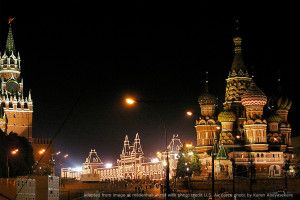NEWSWATCH: “Who Really Influences Policy in Moscow? With thousands of Russians being branded as close associates of Vladimir Putin, it is difficult to tell who actually has a voice in the Kremlin.” -The National Interest/ Nikolas Gvosde

… whether the institute’s [a Russian think tank, the Institute of Strategic Studies] memos advised the Kremlin to undertake these actions or whether they were simply piggybacking on a course of action already decided, the 2016 elections should have started a much more robust conversation about the vitality and resilience of American institutions. Very few people have wanted to tackle the unpleasant question of why Soviet attempts to influence U.S. politics had so little success, while a comparatively low-cost Russian influence operation had so much apparent impact on American voters’ perceptions and preferences. But that debate is still largely absent. The narrative that Donald Trump is the “Siberian candidate” seems much too good to let go—even after the Trump administration launched a military strike on Bashar al-Assad, continued with NATO deployments to Eastern Europe (with the president himself now admitting that the transatlantic alliance is far from obsolete), and refused to grant Exxon an exemption from sanctions to drill for oil with Russian state oil company, Rosneft. Far from initiating a change in U.S.-Russian relations, the new administration seems determined to show that it is doing nothing that might be considered as a benefit for Moscow.
Click here for: “Who Really Influences Policy in Moscow? With thousands of Russians being branded as close associates of Vladimir Putin, it is difficult to tell who actually has a voice in the Kremlin.” -The National Interest/ Nikolas Gvosde
